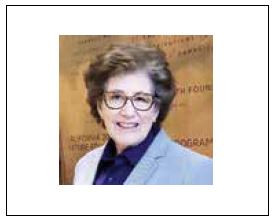
By Dr. Marcy Adelman–
At a time in their lives when they are most vulnerable, LGBT people and trans and non-binary people in particular, are subject to harassment and abuse by staff in long term care facilities. Without laws and guidelines, there is no way to ensure their safety and protection, which is why the recent ruling by the 3rd District Court of Appeal in Sacramento had such a broad and fierce reaction.
A three-judge panel of the 3rd District California Court of Appeal came to a unanimous decision that a provision in the Lesbian, Gay, Bisexual, and Transgender Long Term Care Facility Residents’ Bill of Rights (SB219) violated the rights to freedom of speech and the free exercise of religion. This ruling is a flat out misreading of the bill’s provision. This provision states it is unlawful for a long term care facility and its staff members to “willingly and repeatedly fail to use a resident’s preferred name or pronoun after being clearly informed of the preferred name or pronouns.”
Bill SB 219 is very clear on this, that criminality is only applied when a staff person has been informed of the patient’s correct name and gender and willfully and repeatedly misgenders the resident. There is a world of difference between intentional discrimination and abusive ongoing harassment and an occasional mistake. The ruling was met with a quick and fierce response to restore protection for LGBTQ senior residents of nursing homes, assisted living, and other long term care facilities.
The California Commission on Aging, SAGE, California Advocates for Nursing Home Reform, and Openhouse signed on to a Justice in Aging amicus letter to restore the provision. Equality California, the National Center for Lesbian Rights, Lambda Legal, and additional nonprofit organizations also submitted an amicus letter. These letters focused on the Court’s error in claiming that this provision of SB219 “criminalizes even occasional, isolated, off-hand instances of willful misgendering,” the Court’s failure to understand other California and federal non-discrimination laws that are important to civil rights protections, and the Court’s minimization of the serious harm done to trans people by willful and on-going discrimination.
Research has linked discrimination—in particular, intentional, ongoing misgendering—to high rates of suicide and depression in transgender people. The intentional misuse of transgender people’s name and pronouns in housing, health, school, and workforce settings has been well documented. Treating transgender and non-binary people with dignity and respect by using their correct name and pronouns is essentially treating them equally.
Sen. Scott Wiener, author of SB219, responded to the Court’s decision by saying, “The court’s decision is disconnected from the reality facing transgender people.” Deliberately misgendering a transgender person isn’t just a matter of opinion, and it’s not simply ‘disrespectful, discourteous, or insulting.’ Rather, it’s straight-up harassment. And, it erases an individual’s fundamental humanity, particularly one as vulnerable as a trans senior in a nursing home. This misguided decision cannot be allowed to stand.”
Sen. Wiener has a long history with this legislation and championing the rights of LGBT people. He authored both the state (2017) and local San Francisco laws (2015) that protect LGBT seniors in long term care facilities from abuse and discrimination. Prior to becoming a state senator, Sen. Wiener was on the San Francisco Board of Supervisors as the representative from District 8. In 2015, then Supervisor Wiener sponsored and authored many of the recommendations from the LGBT Aging Policy Task Force, including task force member and esteemed elder law attorney Daniel Redman’s recommendation to improve legal protections for LGBT older adults in long term care facilities. The LGBT Senior Care Facilities Bill of Rights was unanimously approved by the Board of Supervisors in March of 2015.
The current San Francisco representative from District 8, Supervisor Rafael Mandelman, introduced a resolution calling on the state Supreme Court to reverse the 3rd Court of Appeal’s ruling on SB 219. It was passed unanimously by the Board of Supervisors on September 14. In his statement to the Board of Supervisors, Supervisor Mandelman said, “The appellate court treated this provision of the law—which prohibits singling out LGBTQ people for unequal treatment—as a regulation of protected speech, rather than conduct. The court was wrong.”
State Attorney General Rob Bonta filed a petition of review with the state’s Supreme Court. In a statement to the San Francisco Bay Times, Daniel Redman wrote, “We will never stand for our transgender nursing home residents being subject to abuse or discrimination. California law forbids it—and SB219 has been a vital tool in the fight against it. A broad coalition of Californians—union members, prominent legal experts, LGBT and elder advocates, and many more—urge the state Supreme Court to reverse the lower court’s profoundly mistaken ruling and restore SB219 to full strength.”
Dr. Marcy Adelman, a psychologist and LGBTQ+ longevity advocate and policy adviser, oversees the Aging in Community column. She serves on the California Commission on Aging, the Board of the Alzheimer’s Association of Northern California, the California Master Plan on Aging Equity Advisory Committee, and the San Francisco Dignity Fund Oversight and Advisory Committee. She is the Co-Founder of Openhouse, the only San Francisco nonprofit exclusively focused on the health and well-being of LGBTQ+ older adults.
Published on September 23, 2021
Recent Comments